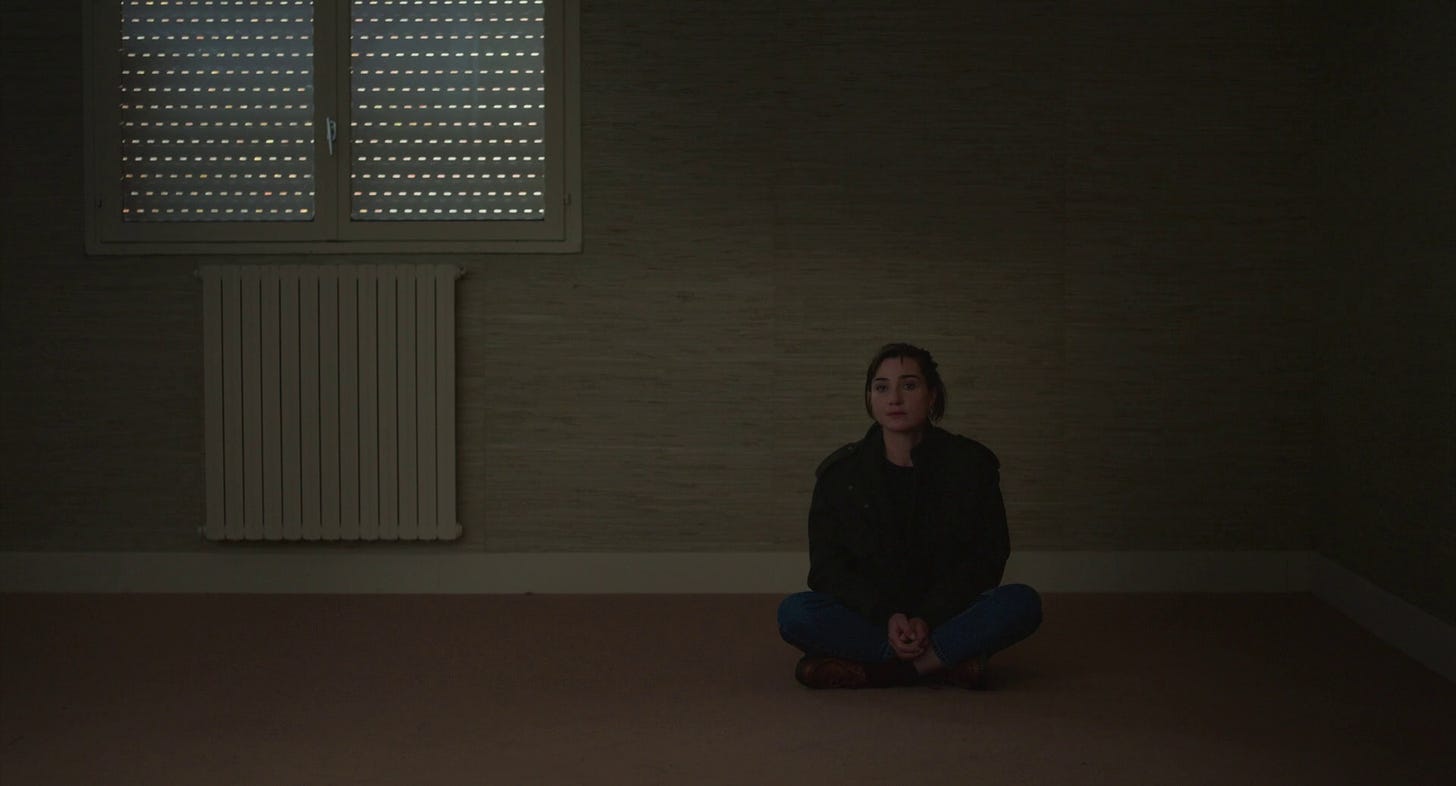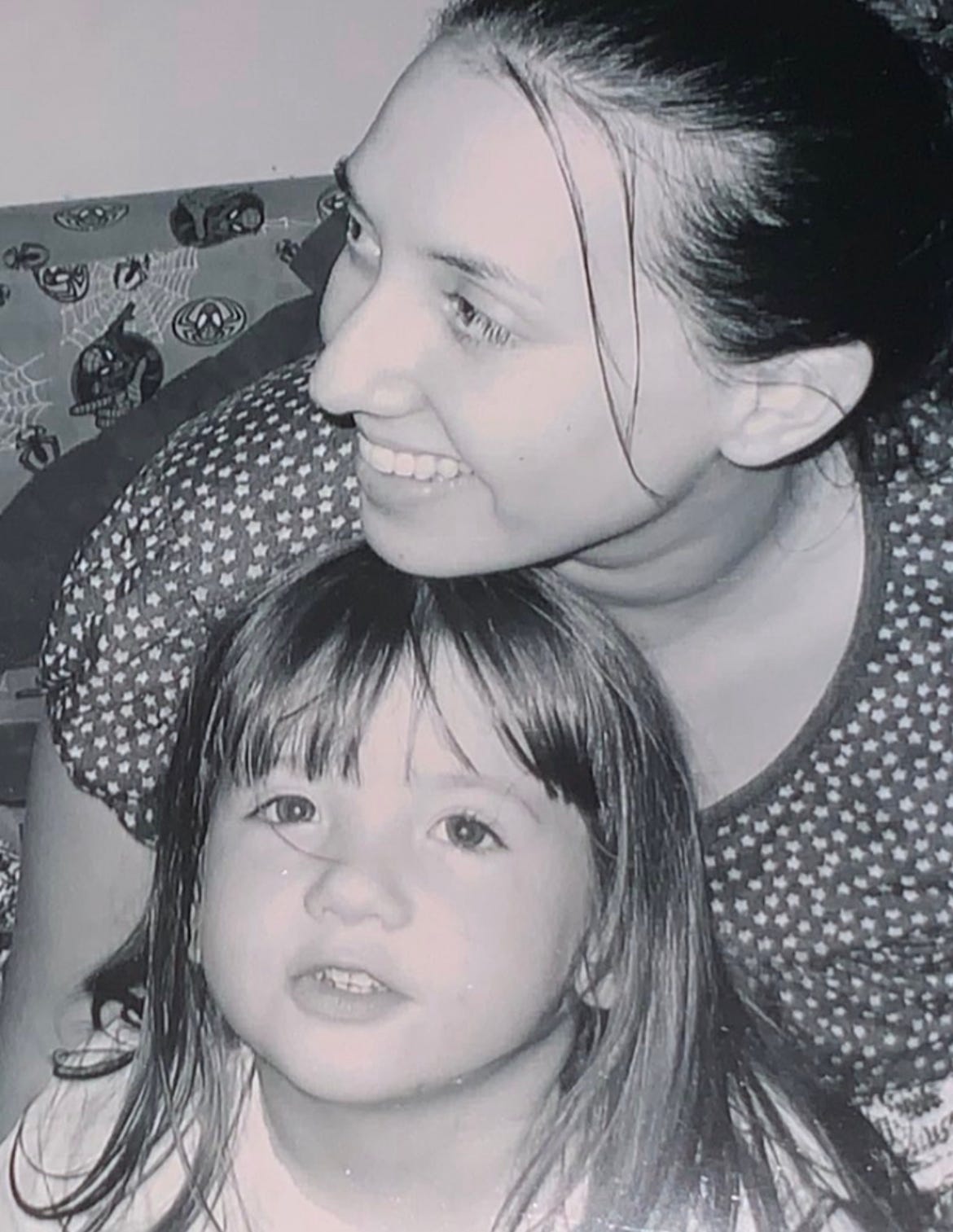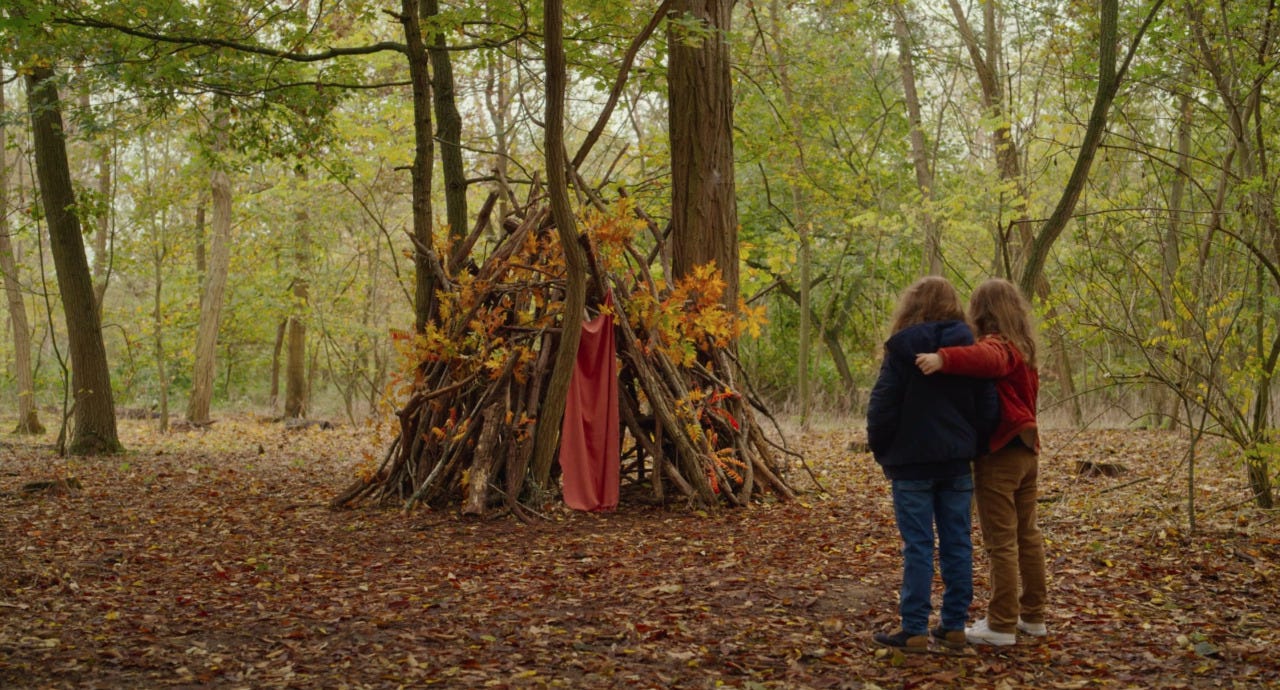Disclaimer: Petite Maman spoilers ahead, if that bothers you.
When I imagine my mother happy, I am not there.
I’m not quite sure what ‘happy’ would look like for her, honestly. Probably somewhere by the ocean with a kettle on the stove. But when I think really, really hard about what happiness is for my mother, I can only get a vague image. I know very little about her outside of motherhood.
If love was not an obligation, would my mother and I offer it to one another?
Better yet—would affection finally be genuine?
When I first watched Petite Maman in September, I thought about those questions for a long time. I spent my last weeks at home asleep in my mother’s bed, only reaching out to her when I knew she wasn’t awake. I’d ask about her childhood—never out loud—and imagine what she’d say about it. I pieced together the girl that my mother was before motherhood, or whatever I could assume from the photos and the limited information she’s given me.
In reality, I don’t know who she was.
I know she hates pastels because she grew up in the ‘80s. I know she had a boyfriend before she dated my father. And I know I wasn't planned.
But I don’t know my mother in a broader sense; outside of being a parent, all I have to know her is a handful of stories that make me feel sick and facts that you might learn about someone from icebreakers at school.
The main concept in Petite Maman, this question of “would my mother and I get along if we knew each other as children?”, it’s something that’s been in the back of my mind since I can remember anything. I didn’t realize Céline Sciamma would ask the audience so literally, but it shook me up pretty badly.
Nelly looks practically identical to the younger version of her mother; a conscious choice, obviously. There are some scenes where I can’t tell the two of them apart. But then, with the dialogue, I can separate them once again. Nelly speaks with the guilt of any daughter who’s wondered if they ruined everything for their mother: she watches the child version of Marion with a bittersweet air.
Marion seems happier as a girl. She seems happier before motherhood.
At the same time, young Marion and Nelly hit it off almost immediately. They’re content with each other’s company.
The two exist in the same house—companionship and an unshakable feeling of being the barrier that stopped your mother from achieving everything she wanted to.
Maybe it’s the guilt, or maybe it’s wanting a kind of unconditional love from my mother that I know I’ll never receive as a daughter. Would we have gone to concerts together, to Blockbuster? Would she have told me everything, or even just anything, if we were friends instead of kin? Would I have told her to steer clear of my father?
I can’t know. It’s not a paradox, per se, but it’s not answerable. It’s all just speculation.
In the beginning of the movie, Nelly and her mother are clearing the grandmother’s house. They go through Marion’s childhood belongings. Marion doesn’t say much, but there’s an openness there for a moment.
It’s painful to relive childhood; more painful yet to watch your mother relive hers.
When I was little, I looked like a clone of photos of my mother at that age. In the last few years, I don’t think I look as much like her, but then I catch it again in the mirror for a second when I brush my teeth before work: hardness. Or exhaustion. A reflection not of the warmth my mother possessed in younger photographs, but something else.
When Nelly looks at the young version of her mother, what does she see?
Liveliness. Humor.
“Because you’re often unhappy. You’re often not glad to be around.”
- “I don’t think it’s your fault.”
Sadness.
There was always sadness. There was sadness before Nelly. She is not the sole proprietor; in fact, it seems she’s not even the source at all.
How do we live with that? How do we live knowing that our mothers might never have been happy, and that we didn’t fix anything for them?
Did I kill my mother’s aspirations?
I am often angry with my mother. I’ve blamed her for everything. I’ve wanted nothing from her. There’s nothing either of us can do to mend each other’s sadness. I know that now.
The best I can do is remember that she was her own person before she was ever my mother. The only consolation I can offer her is I know now that she didn’t invent my sadness, either.






"Maybe it’s the guilt, or maybe it’s wanting a kind of unconditional love from my mother that I know I’ll never receive as a daughter." absolutely incredible, as always. can't believe i missed it. maybe i'll show petite maman to my mother.